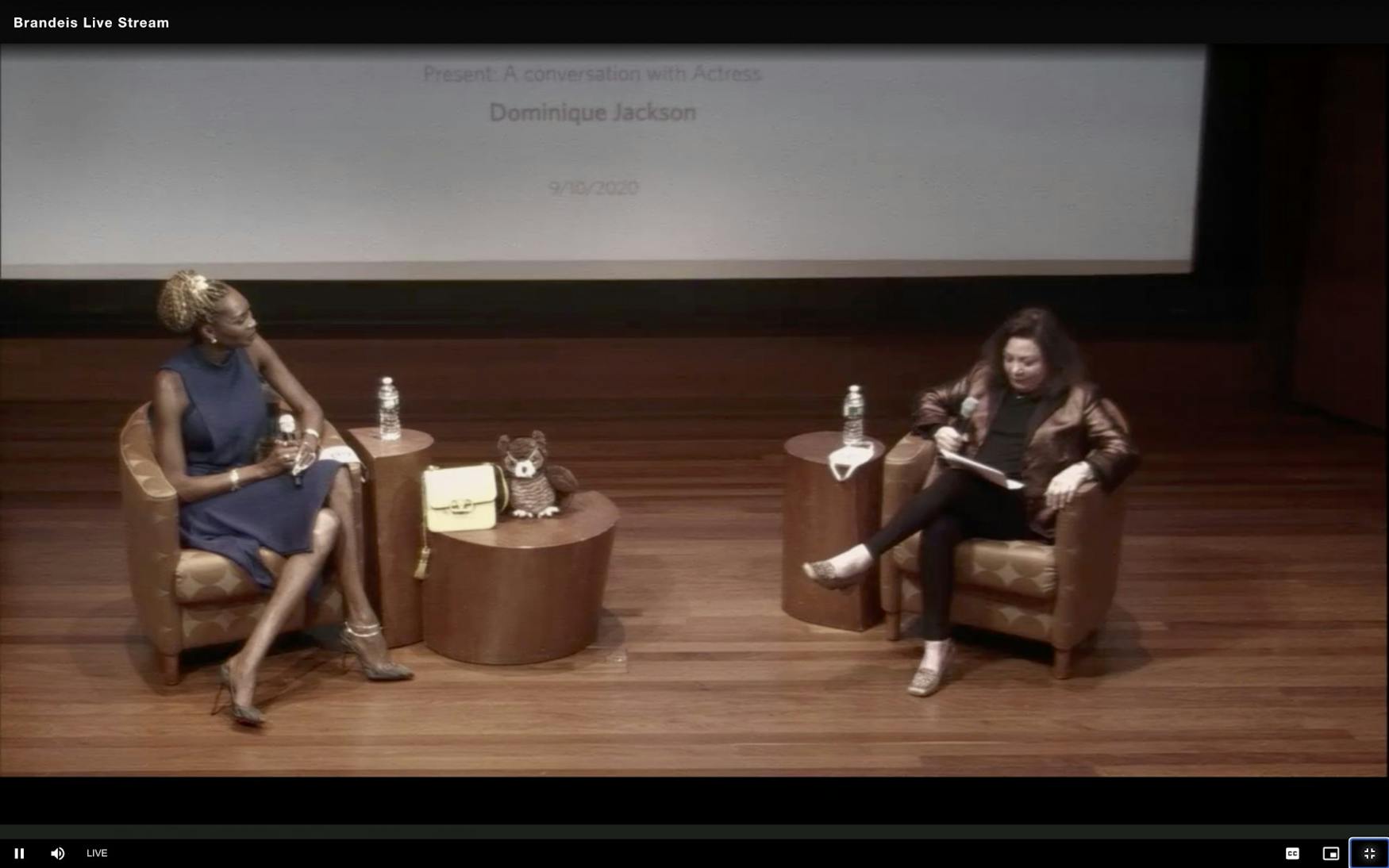Behind the fetish: visibility, love and fashion of trans women
My first impression of actress Dominique Jackson was that she was absolutely stunning. She was sitting comfortably in the chair with her legs crossed in an elegant pose and her body turning in an appropriate angle facing the audience. Jackson, the 45-year-old transgender advocate and actress, was invited by the Brandeis Film, Television and Interactive Media Program for a conversation on Sept. 10. In the next hour, she shared her stories as a fashionista and a proud transgender woman.
Jackson found her life on trend with the transgender and queer advocacy in the world. When she first came to the United States 27 years ago from Tobago, she described herself as being in a constant state of homelessness. As she built a career in modeling, Jackson gradually gained power from fashion itself. To Jackson, fashion is not only her interest and dream, but more importantly, a means to express her value as a person. Jackson smiled when talking about her career and said it was great to be seen, to be respected, and to be paid for her hard work. After 27 years of effort by herself and broader society, she has witnessed the progress toward greater LGBTQ+ rights.
Fashion gave Jackson a rebirth by providing her an independent life. After she claimed her identity through modeling, Jackson built a career in acting, which allowed her to reflect on her childhood and fixed the holes in her early life. Jackson played Elektra in the “Pose,” a 2018 television show that featured gender-nonconforming ballroom culture in the Black and Latinx community in New York in the late 1980s and early 1990s. Elektra was unlike her in many ways. While Jackson is soft-spoken, Elektra is confident and takes initiative. The role empowered Jackson and almost filled in the role of a protector she needed but did not have in her childhood. Throughout the conversation, Jackson emphasized visibility. “We can’t hide,” she said. And because of that, the community should let each other know of their existence, to feel supported in reconciling the conflicts between the world and their identities, and to encourage each other to break through the ceiling. Reminiscing, Jackson shared with her audience the lesson she learned fighting against societal constraints and stressed that, “you have to believe in yourself. People are afraid of you because your truth attacks their beliefs.”
Although facing countless difficulties, Jackson was never lonely. She has had many families throughout her life. She has the family that gave birth to her and raised her, and she had many others that supported her when she stepped into the fashion industry and beyond. These families — the community of transgender women and sexual minorities groups, helped her navigate her work, emotionally supported her, and made her feel loved. She took a step forward and passed this love onward in her advocacy for LGBTQ+ rights and working with the non-profit Destination Tomorrow, an organization in the Southern Bronx focused on LGBTQ+ community outreach. It was through Destination Tomorrow that Jackson realized the importance of giving back to the community and helping each other to find a place to stand in this world. She told the audience that no matter what they encountered because they are different, in any aspect of their identities they should trust themselves and dream big.




Please note All comments are eligible for publication in The Justice.